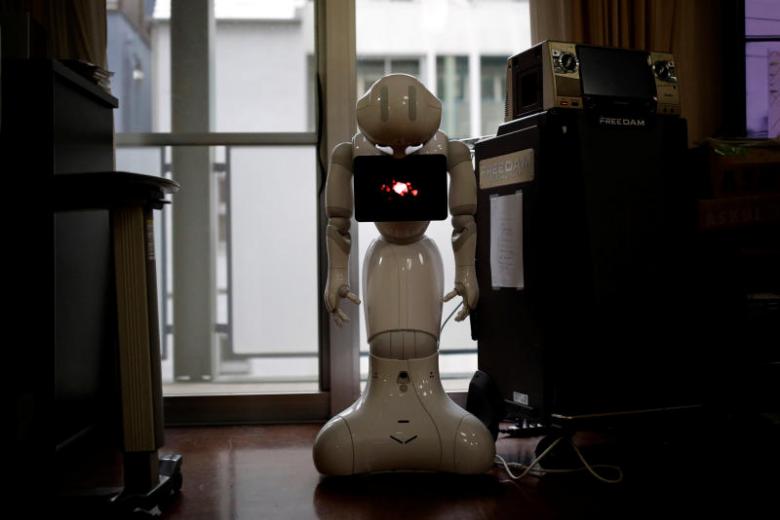TOKYO - Facing a dire shortage of trained IT engineers and lagging behind the region in start-up innovation, Japan has pledged to create a society where "artificial intelligence will become as basic a communication tool as reading, writing and arithmetic - with no one left behind".
This is one of the steps spelt out in its new Integrated Innovation Strategy game plan, signed off by the Cabinet last week, so as to catalyse its smart nation push under the Society 5.0 vision.
Introduced in 2016, Society 5.0 is Japan's buzzword for a high-tech digital and societal transformation. However, two years on, the Cabinet Office has recognised its shortcomings as it vows to reduce bureaucratic red-tape, attract more private funding and spur innovation.
On Thursday (June 21), Mr Koichi Akaishi, who sits on the Cabinet Office's Council for Science, Technology and Innovation (CSTI), candidly identified such obstacles to the Society 5.0 push as the absolute lack in quantity and quality of IT human resources, the inferiority of the number and size of research and development start-ups, and a "rigid socioeconomic structure and the significant lack of globalisation".
As it is, Japan lags much of the region in areas such as cashless payments and the number of start-up unicorns, referring to start-ups with valuations above US$1 billion (S$1.3 billion). Mercari, the flea market app that debuted on the Tokyo Stock Exchange's Mothers section earlier this week, has been the exception rather than the norm.
Under the new game plan, Japan will foster AI literacy among every citizen, starting from primary school. Mr Akaishi added: "We are encouraging universities to come up with curriculum so that all the university students will be able to learn AI logic."
Japan, where immigration remains a politically-charged issue, is projected to face a shortage of 50,000 advanced IT engineers and 300,000 general IT engineers by 2020.
This is why it sees as an urgent necessity to train between 20,000 and 30,000 more advanced IT engineers a year, and 150,000 more general IT engineers a year.
In another measure, Mr Akaishi acknowledged that Japan's 86 national universities are "outmoded" and slipping down global rankings.
"We need to re-define them as central hubs for innovation, business creation and social contribution," he said.
This means creating more opportunities for major collaborations between universities and the private sector, as well as with universities abroad, Mr Akaishi said.
Further, the CSTI wants to move away from the current rigid socioeconomic structure towards a more "flexible and agile equilibrium" by also consolidating the number of so-called "control towers", or different government ministries involved in different projects.
It will also revamp its social infrastructure to make better use of big data, while also formulating new strategies in areas from biotechnology to energy management, and from disaster resilience to quantum computing and space technology.
"This is only the starting point and we hope the strategy can bring Japan to a different direction," Mr Akaishi said, adding that a Cabinet-level coordination meeting will begin next month to discuss the implementation of the new game plan.


